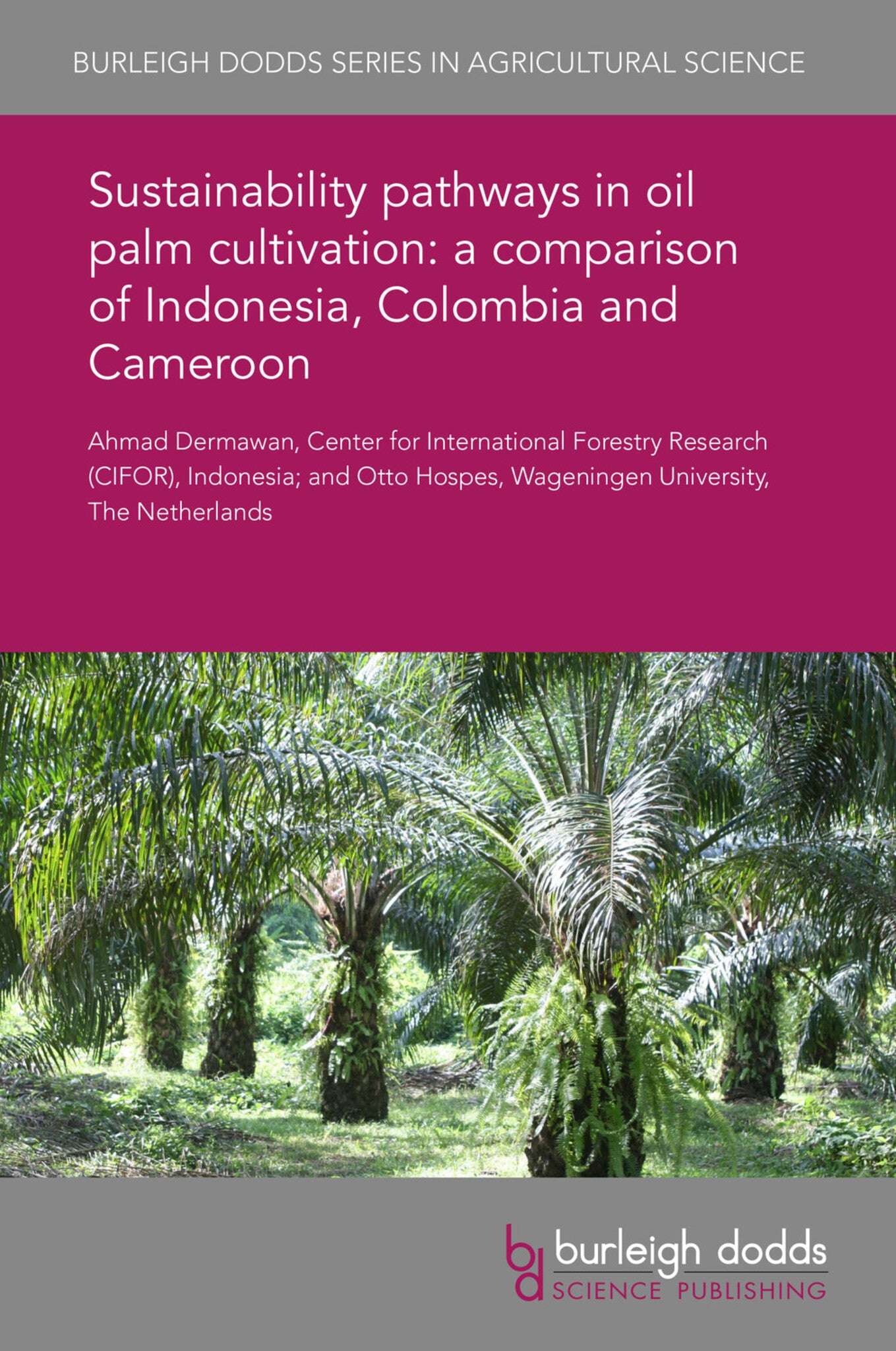We're sorry. An error has occurred
Please cancel or retry.
Sustainability pathways in oil palm cultivation: a comparison of Indonesia, Colombia and Cameroon

Some error occured while loading the Quick View. Please close the Quick View and try reloading the page.
Couldn't load pickup availability
- Format:
-
12 February 2018


TECHNOLOGY & ENGINEERING / Agriculture / Sustainable Agriculture, Tropical agriculture, TECHNOLOGY & ENGINEERING / Agriculture / Tropical Agriculture, TECHNOLOGY & ENGINEERING / Agriculture / Agronomy / General, Sustainable agriculture, Agronomy and crop production

1 Introduction 2 Conceptualizing sustainable pathways 3 Oil palm production in Indonesia, Colombia and Cameroon 4 Sustainable pathways: challenges and initiatives 5 The dynamics of sustainability: actors, regulations and practices 6 Conclusions: creating sustainable pathways 7 Where to look for further information 8 References



